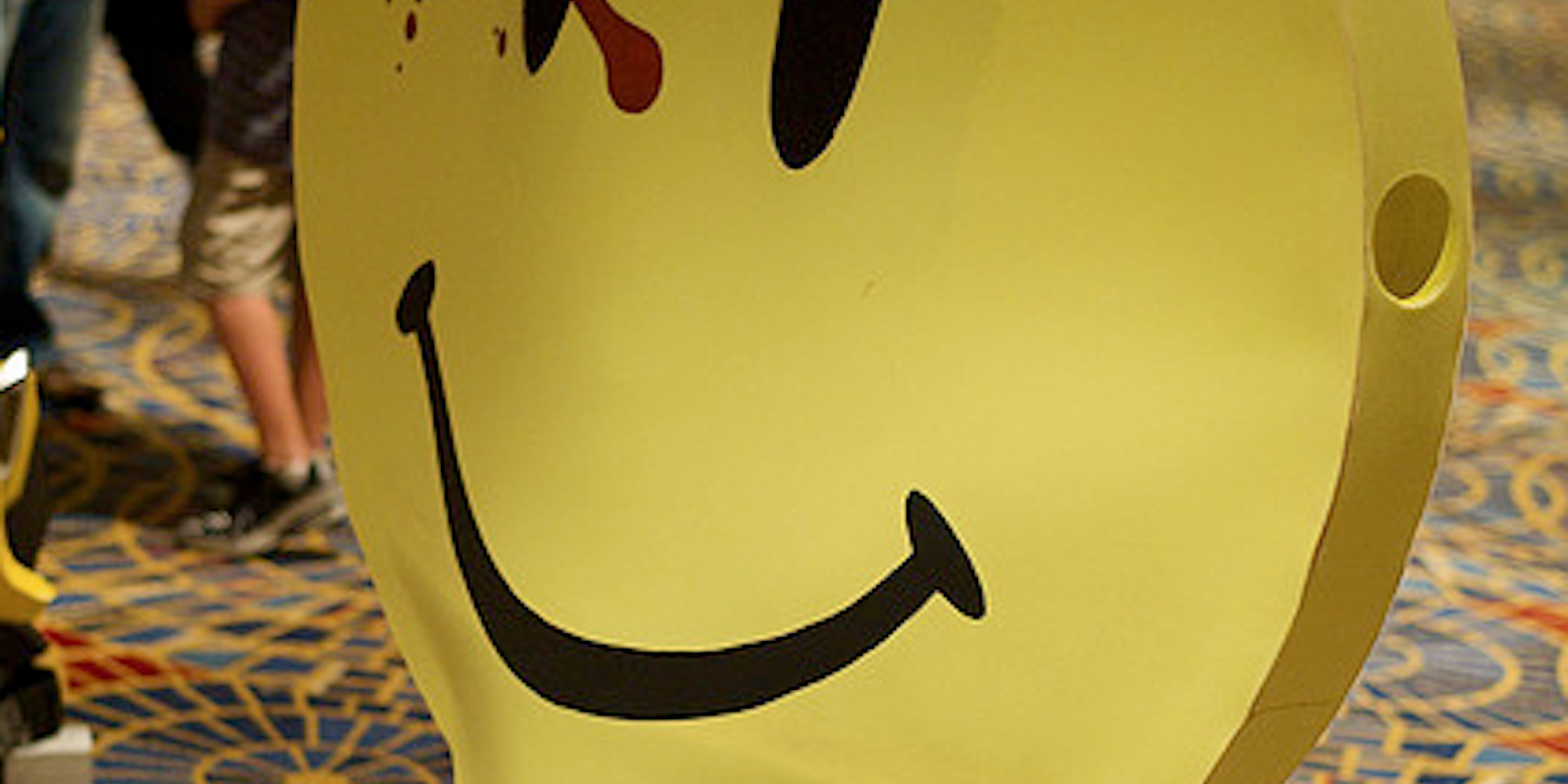Who watches the Watchmen? Alan Moore has had legions of devoted fans for 25 years, ever since he first addressed the question in his highly acclaimed Watchmen comic series. Today the fans have been in an uproar after DC Comics, which owns the rights to Watchmen, officially announced plans to release a series of prequels and sequels, all written without Moore’s input or consent.
Depending on who you ask, the prequels are either the welcome next step in Watchmen’s cultural evolution, or “completely shameless,” to quote Moore himself.
Watchmen fan Lucas Siegel, editor for Newsarama, thinks the prequels are a great idea: “the Watchmen property will see its first new material in two and a half decades this year. And I couldn’t be more excited,” he wrote.
Siegel admitted there’s no guarantee the prequels will be any good, but also said there’s no guarantee they’ll be bad. Either way, he said it’s nice to get new interpretations of Moore’s old characters.
“If a character is compelling, there should always be more stories to tell. Moore’s assessment that DC is relying on his ‘ideas from 25 years ago’ is ludicrous and insulting to the talented people working on these books …. It’s like saying all of [Moore’s] use of public domain characters is him relying on other peoples’ ideas from 100 years ago: he can’t have it both ways.”
But Kevin Melrose, along with his commenters at the Robot 6 Comic Book Resources blog, seemed inclined to sympathize with Moore’s perspective. Melrose highlighted some possibly hypocritical viewpoints offered by J. Michael Straczynski, who wrote and created the Babylon 5 TV franchise and is now writing some of the Watchmen prequels.
Straczynski admitted he wouldn’t like it if someone else wrote Babylon 5 stories without him, but said that’s different from other writers tackling Watchmen without Alan Moore because Moore rejected DC’s offer to write the prequels himself.
“How would I feel if Babylon 5 were being made and I were shut out of anything to do with it, despite my desire to be involved? I’d feel pretty crummy about it. But as it happens, that has absolutely nothing to do with this [Watchmen prequel] situation in any way, manner, shape or form.”
However, Eric Stephenson, writing for It Sparkles, disagreed.
“I’m still kind of gnashing my teeth over the ‘Before Watchmen’ news, mainly because of how dismissive people are of Alan Moore’s rights as a creator … [Moore] created Watchmen under the impression that the rights would be returned [to him] eventually. Within a year after it was concluded, in fact. That’s not my opinion. That’s a fact. It’s public knowledge. …But then the book was kept in print forever, and the rights to Watchmen never reverted back to Moore and [co-creator] Gibbons.”
Jess Nevins, an encyclopedia writer famous for editing or annotating many respected comic compendiums, tweeted a link to the post, saying “This from Eric Stephenson says everything that needs to be said about Moore & Before Watchmen”.
Watchmen started out as a 1980s comic book series, later reprinted as a single graphic novel, that offered a new take on traditional costumed-superhero tropes. Before Watchmen, most comic superheroes were literally supermen or superwomen—stronger, smarter and better than ordinary humans in almost every way. The saying “absolute power corrupts absolutely” never really applied to classic old-school superheroes, most of whom remained modest, humble and down-to-earth despite their godlike powers.
Alan Moore drew a different picture of how such powers would affect whomever wields them. His Watchmen were deeply flawed beings, sometimes worse than the criminals they fought. Moore’s “Comedian,” for example, calls himself a hero, but he’s also a vicious rapist and murderer.
The Watchmen series gained new popularity in 2008, when Warner Bros. announced plans to turn it into a movie. Moore had nothing good to say about that: “[Watching movies] is as if we are freshly hatched birds looking up with our mouths open, waiting for Hollywood to feed us more regurgitated worms. The ‘Watchmen’ film sounds like more regurgitated worms. I for one am sick of worms.”
In 2010, DC offered to return the Watchmen copyright to Moore if he wrote some prequels. Moore refused. “They offered me the rights to Watchmen back, if I would agree to some dopey prequels and sequels,” he told Wired magazine. “I just told them that if they said that 10 years ago, when I asked them for that, then yeah it might have worked. But these days I don’t want Watchmen back. Certainly, I don’t want it back under those kinds of terms.”
So DC hired other science fiction writers to create the Watchmen prequels, and formally announced their upcoming release on Feb. 2.
On Twitter, Moore fan Ian Austin took a dim view of DC’s plans: “Watchmen starts and ends. The before and after is mere context. It does not need prequels. Period.”
But Steve@estebomb sounded a little more tolerant of the prequel idea, or at least less sympathetic toward those who oppose it: “This ‘Before Watchmen’ announcement by DC has Alan Moore rolling over in the coffin I presume he sleeps in each night.”
Photo by vladeb


